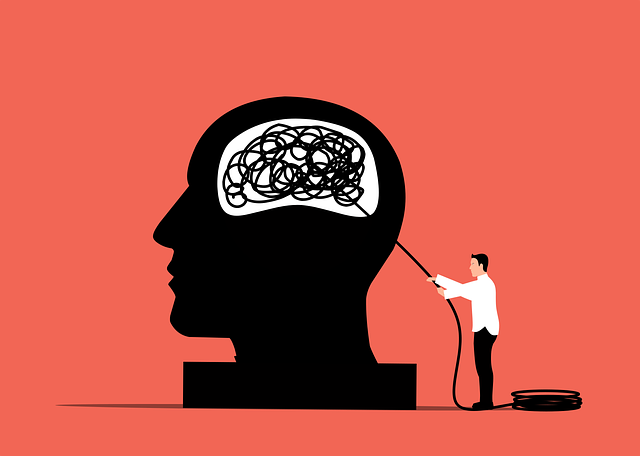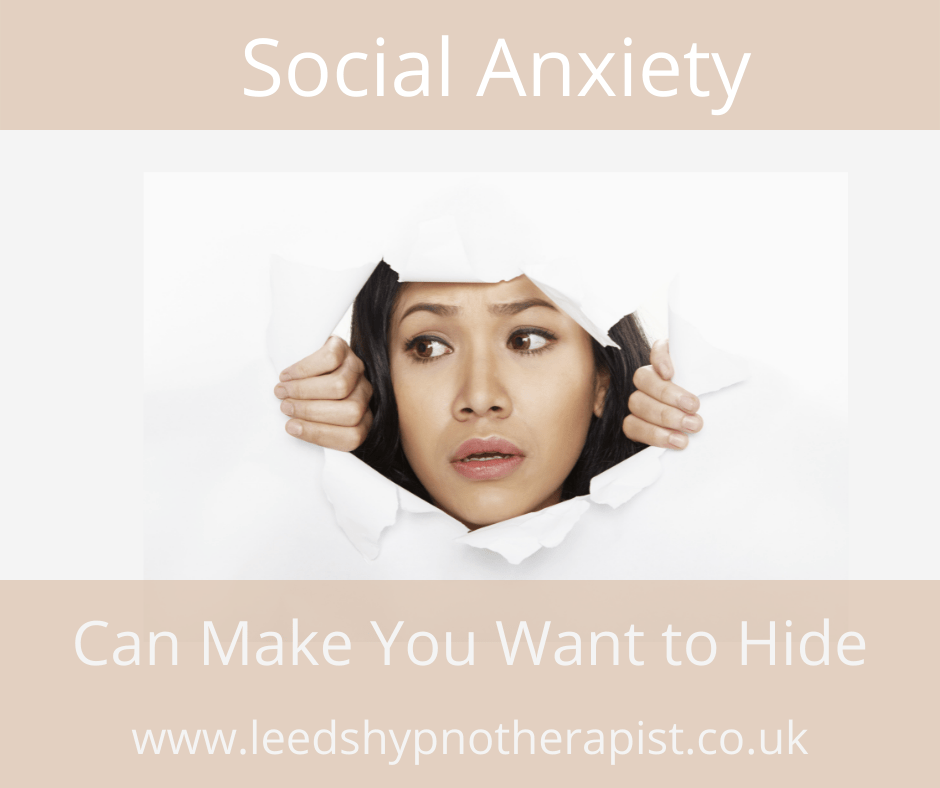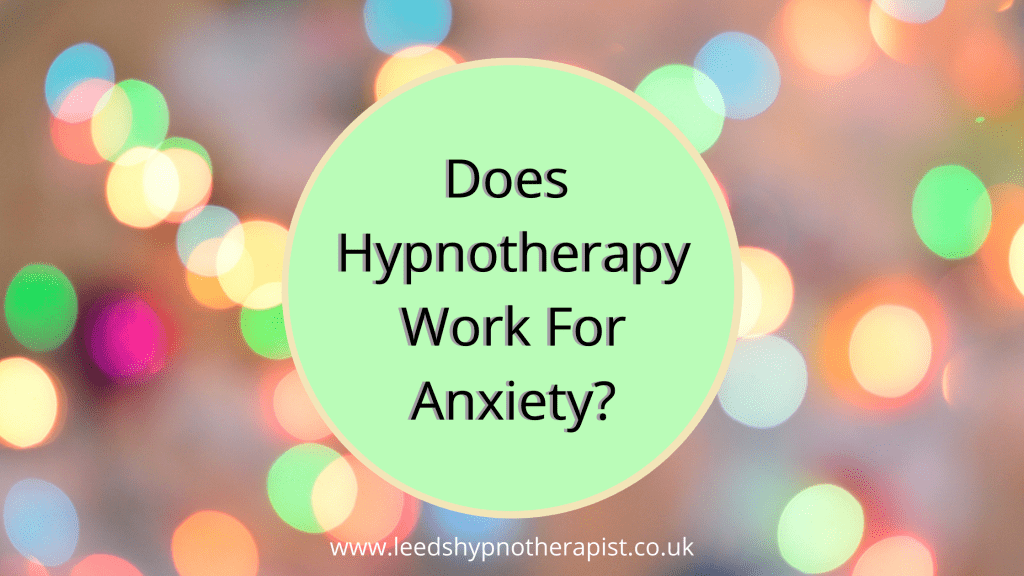When it comes to anxiety disorders, there are a variety of treatment options available. Some people opt for medication while others seek out therapy. But what about hypnotherapy? Does hypnotherapy work for anxiety disorders? The answer may surprise you. Keep reading to learn more about hypnotherapy and its potential benefits for those with anxiety issues.
Anxiety Disorders
Anxiety is among the most prevalent mental conditions that Brits struggle with and are known to be caused by a number of factors (e.g., genetics, early life experiences, and so on).
While it is not possible to know for sure which causes anxiety, psychological theories suggest that they can be linked to various factors. For instance, certain elements of hypnotherapy may help to relieve symptoms by altering the brain’s physiological and psychological functions.
It’s important to know the difference between anxiety and fear. Anxiety is a normal reaction to something upsetting or scary, while fear is an irrational emotion that keeps you from acting like a rational human being.
We often confuse them because they are so closely linked in our minds. However, they are far from the same thing. Fear acts as a warning system for us about potential threats — like wolves or earthquakes — but it doesn’t cause us to run away from danger or avoid situations where we feel it might be present. On the other hand, anxiety acts as a warning system for potential threats and feels uncomfortable when it’s not present or when it becomes too intense — like having your heart race or feeling shaky.
Hypnotism has been around for thousands of years and has been used in many forms of healing since ancient times. However, it was during the 1940s–1960s when hypnosis became more widely accepted and popularized as a form of effective therapy that hypnotherapy was introduced into medicine. This was mainly due to the fact that hypnosis allowed doctors to produce a therapeutic state in patients, through suggestion alone; this would not have been possible without hypnosis as it is an active process.
In addition, hypnotic regression therapy also proved beneficial for anxiety because it allows you to relive your childhood experiences, which could have helped you experience your childhood anxieties in a safe environment while you were younger.
The reason why hypnotherapy is so effective in treating anxiety is due to its ability to induce relaxation and help focus the mind on one’s goals or objectives. It enables people who suffer from anxiety disorders such as panic disorder or agoraphobia (fear of being alone) to feel more comfortable with themselves and their surroundings.
What is Hypnosis?
Hypnosis is one of the most powerful tools available to improve your life. It has been used for thousands of years to help people achieve the health, wealth, and happiness we all desire.
But what does hypnosis actually do?
It’s a set of techniques that work on your mind and attempt to induce a state of relaxation. The term “hypnotic” comes from the Greek word “hypnos,” meaning sleep or dreamless slumber. The technique involves complete relaxation while you receive instructions from an experienced professional who can guide you through this state by means of visualizations, auditory instructions, breathing exercises and other strategies.
In a study published in the journal Neuropsychopharmacology, researchers found that patients with anxiety used hypnosis more often than healthy controls. They also found that patients who were unable to control their anxiety used hypnotic techniques even more frequently than those suffering from depression or panic disorder.
A 2003 study published in the Journal of Clinical Psychology found that those who used hypnotherapy had better performance on cognitive tests, better memory retention, fewer assaults on their personal space, and less worry about things they were interested in.

How Hypnosis Can Treat Anxiety Disorders
Hypnotherapy is a specific form of mind control. It’s an interaction between your thoughts and your body. Hypnosis can be performed on multiple levels, but the practice of hypnotism is focused on the subconscious mind.
I want everyone to know that hypnosis isn’t a magic trick or a self-help technique. It isn’t even really an “alternative” to drugs or alcohol. It’s not something that you need to take if you are addicted to alcohol, drugs, or gambling. It’s simply another tool in the toolbox that we all have access to in our minds.
It’s also important to note that not everyone who uses hypnotherapy has an anxiety disorder. Many people use hypnotherapy simply because they are curious about what it feels like when you put your mind into a trance and believe yourself to be asleep — or even more likely because they think it will help them sleep better at night.
Hypnotherapy can certainly be helpful for those who suffer from milder forms of anxiety disorders such as social anxiety disorder (social phobia), post-traumatic stress disorder (PTSD), or generalized anxiety disorder (GAD). However, there are other mental health conditions that aren’t helped by hypnosis — and some people who suffer from these types of disorders can also benefit from using hypnosis for their own personal growth and healing.
While there are many different treatments for anxiety, hypnosis is increasingly being recognized as an effective option. Unlike medication, which only masks the symptoms, hypnosis works to treat the underlying causes of anxiety. By teaching people how to relax and focus their thoughts, hypnosis can help them to manage their anxiety in a more constructive way. As a result, it can be an extremely effective treatment for both short-term and long-term anxiety disorders.
The Different Types of Anxiety Disorders
Anxiety disorders are some of the most common mental health conditions. They can be triggered by a variety of things, and symptoms can range from mild to severe. There are several different types of anxiety disorders, each with its own set of symptoms. The most common include generalized anxiety disorder, panic disorder, and social anxiety disorder.
Generalized anxiety disorder is characterized by excessive worry and tension. Panic disorder is characterized by recurrent panic attacks, which can cause physical symptoms such as chest pain and shortness of breath. Social anxiety disorder is characterized by an intense fear of social situations. While all three types of anxiety disorders can be debilitating, they are treatable.
Other types of anxiety disorders include social anxiety disorder, agoraphobia, health anxiety and specific phobias. While the symptoms of each type of anxiety disorder vary, all types of anxiety can be treated with medication, therapy, or a combination of both.
With proper diagnosis and treatment, many people are able to manage their symptoms and live normal, productive lives.
Panic Disorder
Panic disorder is a condition that causes people to experience sudden and intense episodes of fear or anxiety. These episodes, known as panic attacks, can occur without warning and may be accompanied by physical symptoms such as a racing heart, shortness of breath, or dizziness. Some people with panic disorder have a fear of specific places or situations, while others have a more general feeling of anxiety. For many people, panic attacks can be extremely debilitating and can make it difficult to lead a normal life.
Hypnotherapy is a type of therapy that uses relaxation techniques to help people overcome their fears and anxiety. Once in this state, the therapist can help the person to understand and manage their panic disorder. This can involve identifying and changing negative thoughts and beliefs about anxiety. By teaching people how to relax and focus their thoughts, hypnotherapy can help to stop panic attacks from occurring. Hypnotherapy can also help people to understand and address the root causes of their panic disorder. As a result, it can be an effective tool for managing the panic disorder and reducing the frequency of panic attacks.
In addition, hypnotherapy can also help to improve the quality of life for those who suffer from panic disorder by helping them to manage their symptoms and regain control of their lives.
Social Anxiety Disorder
The stigma associated with social phobia is commonly cited as one reason why people continue suffering from this condition and not others like depression or OCD or even panic attacks. In fact, social phobia is so socially stigmatized that it was recently added to the list of mental illnesses considered by the World Health Organization (WHO) as a diagnosable disease rather than a socially acceptable ailment.
So what does hypnosis have to do with overcoming social phobia? Well, there are several different methods used by therapists in order to help patients overcome their fear and stop experiencing symptoms related to their condition such as emotional numbness or poor self-esteem. One model often used by these therapists is cognitive behavioural therapy (CBT). CBT involves stimulating your mind through various techniques such as exposure therapy (exposure therapy helps you face your fears), cognitive restructuring (exercises aimed at helping you identify how your thoughts affect your feelings), relaxation training (steady breathing technique helps you calm down) and medications like benzodiazepines or antidepressants in order to treat conditions like panic attacks and/or depression. Many people find this very helpful in treating their condition because they know they are working on changing their thinking patterns by doing these techniques over time. However, some people who are suffering from a social phobia may find that hypnotherapy works better than traditional methods because it has fewer negative side effects such as panic attacks

Generalized Anxiety Disorder
Generalized Anxiety Disorder (GAD) is the most common anxiety disorder, affecting a person’s ability to function in every area of their life. It can also be more severe than panic disorder and other forms of anxiety.
Hypnotherapy is a mental healing tool that helps people with Generalized Anxiety Disorder overcome their anxiety by making them feel relaxed and calm.
In hypnosis, your brain is encouraged to change or reshape its message so that it no longer causes the symptoms of anxiety. When you become hypnotized, you are encouraged to focus on relaxing your mind and body and letting go of any thoughts that might be causing stress or anxiety in your body or mind.
It’s safe to say that many people find hypnotherapy very helpful in treating GAD because hypnosis is an effective treatment for many conditions. The same holds true for GAD; you can use hypnosis to help yourself overcome your stress if you want to improve the quality of your life.
To explore how hypnosis and hypnotherapy can help with treating Generalized Anxiety Disorder, here are some questions I suggest asking yourself:
- How often do you feel anxious?
- What happens when you feel anxious?
- Do you have any memories associated with feeling anxious? If so, how do they make you feel? How do they make you think about what happened, what is happening right now, or how can it happen again? If not, what are some memories that cause worry and worry in general? How does it make you feel like something bad could happen at any minute? For example: “I’m going to get into an accident!” “I don’t know if I’ll be able to catch my breath soon!” “My body feels weak! My heart races!” “My legs are shaking!” “My stomach feels sickish!” All three of these questions will give me some insight into what may be causing your anxiety and how it affects your body’s response when stressed out by fear.
- Is there anything else about feeling anxious besides worrying about things happening right now or a past event?
- Are there ways that feeling anxious makes things worse instead of better for managing stress as a way of avoiding unpleasant situations at work or school?
- Are there ways this problem has become a way of avoiding being around other people because it makes being around others appear scary and frightening instead of exciting or fun like we’ve come to expect from them?
- Are there any other areas of your life that have become difficult to manage because of this anxiety?
- What are some things you would like to do but don’t feel like you can because of your anxiety?
- Are there any goals you have for yourself that seem impossible right now because of how your anxiety makes you feel?
- How would it feel to achieve those goals and live your life differently?
How many hypnotherapy sessions are needed for anxiety?
In general, I will see people for anywhere between 1 and 4 hypnotherapy sessions depending on how severe their anxiety is. A single hypnotherapy session can be enough for some as people tend to believe that their anxiety is much worse than it really is.
During your first session of hypnosis, you will likely be surprised about how much change can happen for you. Even though you may feel anxious beforehand, once you are in a relaxed state, it is much easier to go into the altered state of hypnosis.
I often tell people to expect three hypnosis sessions and look at how much change is possible for them from there.
How long does it take for hypnosis to work for anxiety symptoms?
For many people who suffer from anxiety, the thought of hypnosis conjures up images of being controlled by another person. However, hypnosis is actually a very effective tool for treating anxiety symptoms.
If you’re dealing with anxiety, you might be wondering how long it will take for hypnosis to work. The answer depends on a few factors, including the severity of your anxiety and whether you’re using self-hypnosis or clinical hypnotherapy. Generally speaking, though, most people begin to see results after a few sessions.
Self-hypnosis is often more effective for milder forms of anxiety, while clinical hypnotherapy is often better for more severe cases. That said, both approaches can be helpful in treating anxiety symptoms. In self-hypnosis, you’ll use relaxation techniques to reach a state of deep relaxation, during which time you’ll focus on positive affirmations and suggestions. This can help to retrain your mind to respond differently to anxiety-triggering situations.
Clinical hypnotherapy usually incorporates some elements of self-hypnosis, but also uses other techniques, such as regression therapy, to help you address the root cause of your anxiety.
No matter which approach you use, hypnosis can be an effective tool for managing anxiety. With regular practice, you can learn to control your anxiety and start enjoying life again.
Can hypnotherapy make anxiety worse?
Anxiety is a normal emotion that everyone experiences at some point in their lives. However, for some people, anxiety can become so severe that it interferes with their ability to function in everyday life. If you’re struggling with anxiety, you may be considering seeking treatment from a hypnotherapist. However, you may be wondering if hypnotherapy can actually make your anxiety worse.
The good news is that there is no evidence to suggest that hypnosis can make anxiety worse. In fact, many studies have shown that hypnosis can be an effective treatment for anxiety. One study found that self-hypnosis was as effective as cognitive behavioural therapy in reducing symptoms of anxiety. Another study found that clinical hypnotherapy was effective in treating a range of anxiety issues, including panic disorder, phobias, and social anxiety disorder.
If you’re considering seeking treatment for your anxiety, there’s no need to worry that hypnotherapy will make your symptoms worse. In fact, hypnosis is a proven effective treatment for anxiety that can help you to reduce your symptoms and regain control of your life.
Hypnotherapy for anxiety near me in Leeds
If you are looking for a safe and effective way to treat anxiety, hypnotherapy may be the answer for you. Hypnosis is a very fast-acting treatment method, so you may only need one to four sessions of hypnotherapy.
Contact The Leeds Hypnotherapist today to find out more about how hypnosis can help you overcome your anxiety issues!




